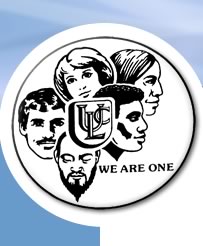Looking at the original articles of incorporation (I have a printed copy) of the Universal Life Church, the church was originally formed to further the "Christian" religion, reflecting the religious background of its founder. It labels itself a "denomination" ("Life Church"). This is a somewhat limited reach and can also be seen in some of the courses offered that has a biblical or "western" religion focus.
A few years later, it re-establishes itself as the "Universal Life Church" that has a "philosophy of universal humanism." Its "doctrine" is that "each individual has the right to interpret God according to his own theory or concept." This allows "all religious beliefs" to be welcome, "for the underlining principle that will unite all people of all races, religions and nations is the universal idea of peace and prosperity." The use of "God" might bother some though one's "theory or concept" might see God as purely impersonal or a construction of society or a metaphor. Going to the website, "God" is not specifically cited here.
The church is still said to be "religious" in nature and non-profit, but there the "denomination" label disappears. The express interest to "unite" is shown by the "maxim" expressed in its booklet and website: "we are one," symbolized by a circle with various types of people inside. Their "goal" is to "break down the walls around all religion." In its opinion, this is done in part by education, including understanding "every religion is not complete within itself" and by combining various types, we learn we are "one people" with a certain combined place in the world.
A reasonable amount of content to separate it from other religions, again with shades of simplified / less organized Unitarian Universalism, down to starting out more specifically Christian and then expanding its scope to include more and more people with a "universal" flavor that promotes uniting (and respecting) various religions, each having something to offer. The "humanism" also connects it to ethical culture.

